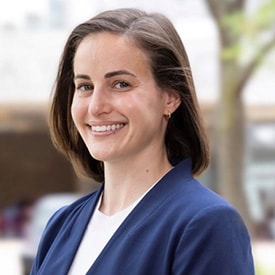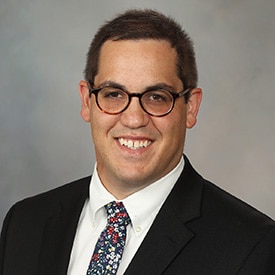Research
/prod01/channel_2/media/mccms/content-assets/academics/residencies-and-fellowships/pediatric-and-adolescent-medicine-residency-mn/ped-adol-res-mn-1024X512-research-teaching-service-residents-outside.jpg)
You can participate in scholarly projects during your residency, ranging from laboratory, clinical, translational, or quality-improvement research.
Mayo Clinic provides up to 10 travel days each year and expense reimbursement for all abstracts accepted for oral or poster presentations at national meetings and many international meetings.
Clinical and Translational Research Training
For those residents who wish to pursue very extensive research during their training, we can support a variety of pathways including the ABP-approved Integrated and Accelerated Research Pathways, along with the Clinician Investigator Training Program and the NIH-funded StARR program.
The Clinician-Investigator Training Program is an integrated, comprehensive educational experience for trainees interested in pursuing a research-based career within a robust clinical practice. The program allows trainees pursuing fellowship to start their fellowship-related research during residency. Learn more about the Clinician-Investigator Training Program.
Mayo Clinic is also the recipient of a prestigious NIH StARR award, which funds both training in research and research for one to two years for up to one pediatric resident per year. Learn more about StARR.
Beyond these pathways, Mayo Clinic provides a variety of services to all Mayo investigators and study teams. Learn more about opportunities in the Center for Clinical and Translational Science (CCaTS).

"My position in the Clinician Investigator Training Program connected me with resources, expertise, and opportunities across Mayo Clinic enterprise that have propelled my research projects forward." —Whitney Thompson, M.D., class of 2023, now a fellow in Neonatal Medicine and Medical Genetics at Mayo Clinic
 "As a pediatric resident, I joined a very specialized adult cardiovascular research group that focuses on the application of artificial intelligence to diagnose heart disease. I was welcomed into the group and provided access to their knowledge and resources to expand their project into the realm of pediatric and congenital heart disease. My year as a StARR fellow was a foundational experience as a future physician scientist. Having this dedicated time gave me a taste of what it is like to balance clinical and research responsibilities. I received mentorship from successful physician scientists, and I gained research skills leading large scale projects with significant autonomy. The StARR program was one of the highlights of my residency experience." —Scott Anjewierden, M.D., now a fellow in cardiology at University of Utah in St. Lake City
"As a pediatric resident, I joined a very specialized adult cardiovascular research group that focuses on the application of artificial intelligence to diagnose heart disease. I was welcomed into the group and provided access to their knowledge and resources to expand their project into the realm of pediatric and congenital heart disease. My year as a StARR fellow was a foundational experience as a future physician scientist. Having this dedicated time gave me a taste of what it is like to balance clinical and research responsibilities. I received mentorship from successful physician scientists, and I gained research skills leading large scale projects with significant autonomy. The StARR program was one of the highlights of my residency experience." —Scott Anjewierden, M.D., now a fellow in cardiology at University of Utah in St. Lake City